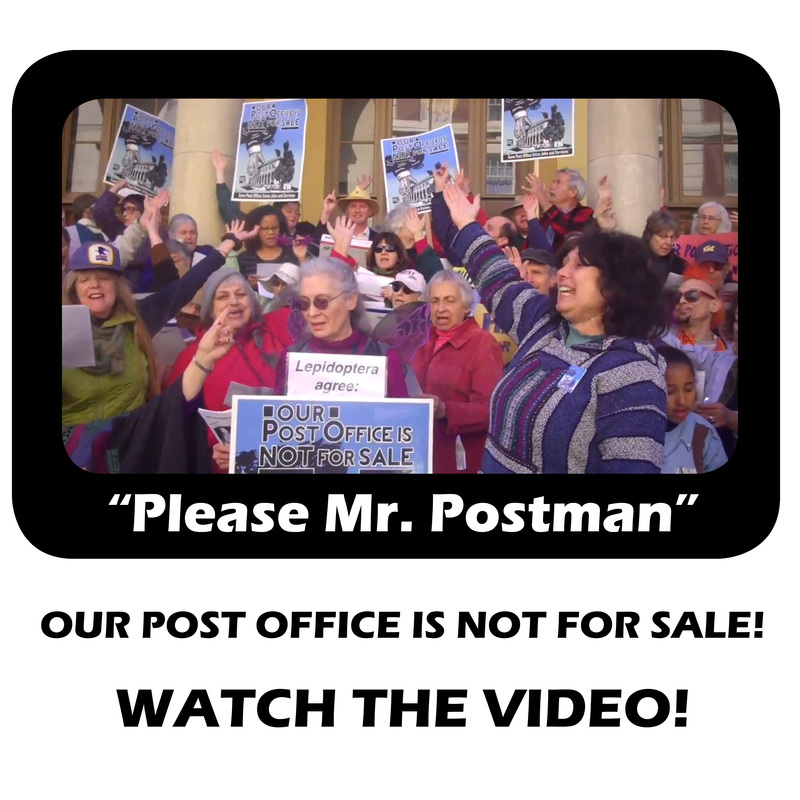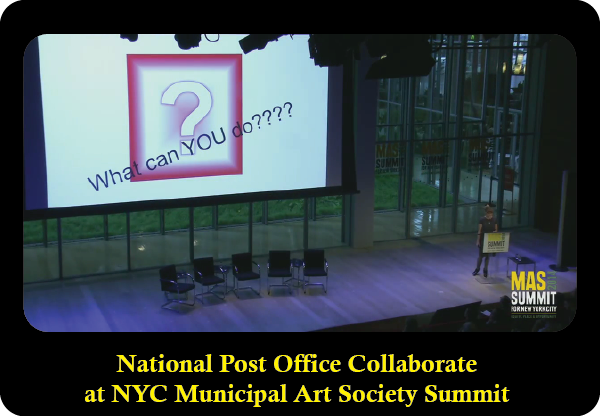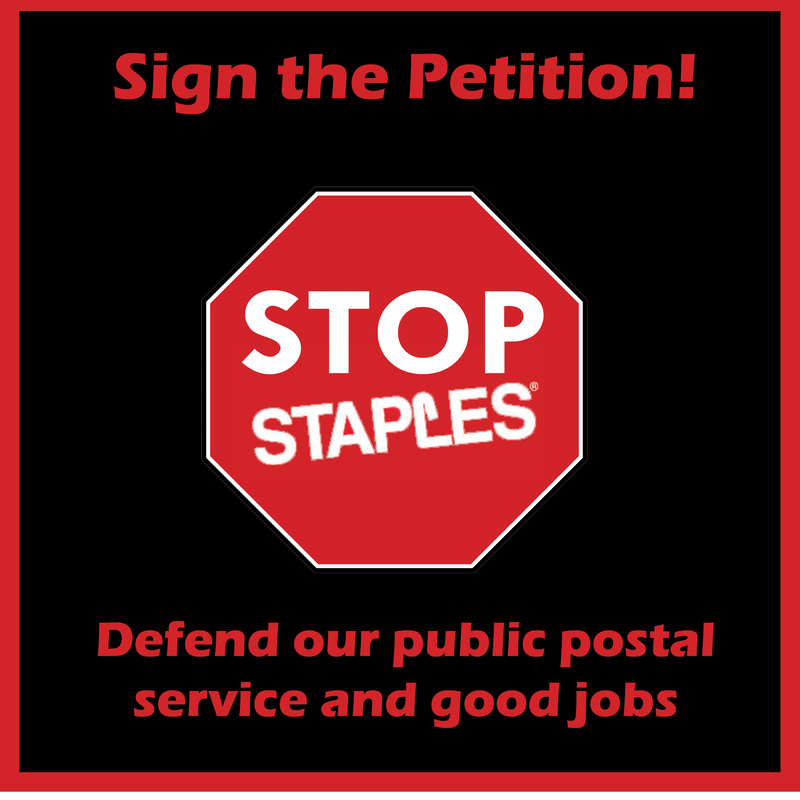Postal Service Twists the Law to Sell Berkeley's 1914 Main Post Office
On September 24, 2014, the U.S. Postal Service (USPS) wrote to the President's Advisory Council on Historic Preservation (ACHP) to advise that the California State Historic Preservation Officer, the City of Berkeley, the National Trust for Historic Preservation, and the California Preservation Foundation do not agree with the finding of the USPS that there will be no adverse effect on historic properties from the sale of Berkeley's Downtown Post Office at 2000 Allston Way. The USPS requested that the ACHP "issue an opinion as to whether the adverse effect criteria have been correctly applied."
Based on USPS past practice, this request to the ACHP indicates that the USPS is moving forward to sell Berkeley's Main Post Office.
When the ACHP replies the USPS is required to respond but is not required to comply with the ACHP recommendations. Once the USPS issues their response there is no further administrative remedy. To say it plainly, USPS can sell 2000 Allston Way.
The ACHP currently intends to issue their response on Friday, October 24, 2014.
The USPS is proposing that the USPS will hold a covenant over the property to make sure that the sale does not affect the historic features of the building. Given the recent conduct of the USPS, this is surely a case of trusting the fox to guard the hen house.
Section 106
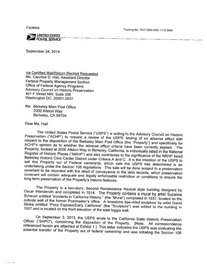 Link to the September 24, 2014 letter from the USPS to the ACHP
Link to the September 24, 2014 letter from the USPS to the ACHP
The ACHP is the authority on the responsibilities of government agencies with regard to historic property. But their role is only advisory. The ACHP supported our request to be a consulting party and wrote to the USPS pointing out that the USPS had not even provided a reason for denying us consulting party status. USPS thinks so much of the ACHP they didn't bother to respond.
So why is the USPS asking the ACHP to issue an opinion on whether they agree with the USPS determination of No Adverse Effect (NAE)? We can find part of the answer by going to the Federal Regulation. Section 800.5 provides an option for an agency when consulting with citizens and communities becomes tiresome: a Finding of No Adverse Effect. After making the finding of no adverse effect, the Agency requests a comment from the ACHP, notifies the consulting parties, waits for the ACHP response, and then issues a response to the ACHP. In the case of the USPS, that response is typically that the USPS disagrees with the ACHP.
From 800.5: "If the final decision of the agency is to affirm the initial finding of no adverse effect, once the summary of the decision has been sent to the Council, the SHPO/THPO, and the consulting parties, the agency official's responsibilities under section 106 are fulfilled."
The table below show that the USPS has gone the NAE (No Adverse Effect) route five times before and in four instances the post offices have been sold (Somerville, Santa Monica, Venice and Ukiah). The fifth, La Jolla, is still at risk. In all of these cases, the ACHP judged the USPS covenant "insufficient."
List of USPS Disposals with ACHP Involvement
|
Post Office |
State |
ACHP Section 106 Action |
Year of Last ACHP Action |
Description |
|
Berkeley |
CA |
NAE opinion |
2014 |
Ongoing consultation |
|
Somerville |
MA |
NAE opinion |
2014 |
ACHP found covenant insufficient |
|
Hoboken |
NJ |
Non-participation |
2014 |
MOA executed |
|
Houston |
TX |
Participation |
2014 |
MOA executed |
|
Santa Monica |
CA |
NAE opinion |
2013 |
ACHP found covenant insufficient |
|
Northfield |
MN |
Technical assistance |
2013 |
Forwarded received public inquiry to USPS |
|
Bronx |
NY |
Technical assistance |
2013 |
Advised USPS on ACHP role in NAE findings consultations |
|
Yankton |
SD |
Technical assistance |
2013 |
SHPO concurred on NAE finding with covenant |
|
La Jolla |
CA |
NAE opinion |
2012 |
ACHP found covenant insufficient |
|
Redlands |
CA |
Technical assistance |
2012 |
Forwarded received public inquiry to USPS |
|
Ukiah |
CA |
NAE opinion |
2012 |
ACHP found covenant insufficient |
|
Venice |
CA |
NAE opinion |
2012 |
ACHP found covenant insufficient |
|
Princeton Palmer Square |
NJ |
Non-participation |
2012 |
MOA executed |
|
Bob Harris Station |
TX |
Non-participation |
2012 |
MOA executed |
|
Westport |
CT |
Non-participation |
2011 |
MOA executed |
|
Peck Slip |
NY |
Non-participation |
2011 |
MOA executed |
|
Eugene |
OR |
Technical assistance |
2011 |
Forwarded received public inquiry to USPS |
|
Medford |
OR |
Technical assistance |
2011 |
Advised USPS on required notification of AE; MOA executed |
|
Gateway Station |
CA |
Non-participation |
2010 |
MOA executed |
|
San Diego Downtown Station |
CA |
Non-participation |
2010 |
MOA executed |
|
Golden Downtown Station |
CO |
Non-participation |
2010 |
MOA executed |
|
Georgetown |
DC |
Non-participation |
2010 |
MOA executed |
|
Terre Haute |
IN |
Non-participation |
2010 |
MOA executed |
|
Bremerton |
WA |
Non-participation |
2010 |
MOA executed |
|
Queen Anne |
WA |
Non-participation |
2010 |
MOA executed |
|
Carnegie |
PA |
Non-participation |
2008 |
MOA executed |
|
Port Townsend |
WA |
Non-participation |
2008 |
MOA executed |
Those of you with long memories will remember that Berkeley Mayor Tom Bates appealed the sale of our post office to the Postal Regulatory Commission (PRC). The USPS called the sale a "relocation" and the PRC refuses to protect citizens against USPS relocations. But our Mayor asked where USPS intended on moving. USPS replied they didn't know but might just lease back the space they need at 2000 Allston Way. Well, what about USPS keeps the building and lease out any excess space. USPS could stay in place and rental revenues could defray maintenance costs. "Oh, No! Managing real estate isn't something USPS does."
So the City of Berkeley agreed to hold the covenant but made it conditional on the USPS agreeing to a long-term lease at 2000 Allston Way from the new buyer. That also wasn't a USPS thing.
Finding the City of Berkeley slow to agree to USPS dictates, the USPS now proposes that the USPS will itself be the covenant holder. This is problematic on many levels. Preservation is not a USPS priority, USPS has a demonstrated problem in working with communities. Moreover, USPS has never before acted as a covenant holder and has no experience administering a covenant. The covenant holder ought to have a licensed architect with historic preservation expertise available for on site determinations. The City of Berkeley has that. The USPS would have to contract locally. The covenant is perpetual but unlike the City of Berkeley, USPS is not requesting compensation for the expenses of "perpetual" administration of the covenant. As the seller of the building AND with a demonstrated greater interest in cash than preservation, the USPS has an inherent conflict in including any covenant language that would impact the sales price of the building. This conflict is reflected in the USPS covenant language which provides for automatic approval of changes to the building if the USPS fails to respond to a request.
For more comments on the problems with the USPS proposal, please read the October 14, 2014 response from attorneys for the City of Berkeley and the National Trust for Historic Preservation.
Click to download a copy of the USPS Proposed Preservation Covenant.
The New Deal Art Work
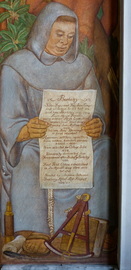
The USPS doesn't get it. In their letter their Preservation Officer describes the bas-relief as depicting the Pony Express. The letter continues: "These artworks are, and will remain, personal property of the USPS. The USPS intends to enter into a loan agreement with the purchaser that will, among other things, allow the artworks to remain in their current location, allow consistent public access not less than one day per month during normal business hours." So the USPS views these works of public art as their "personal property." Who even knew that the USPS was a person? And of course the notion that access to our art once a month is somehow sufficient is consistent with that view.
In the words of Gray Brechin, "The language of the public good is neither spoken nor understood by those who now run our postal service."
What are our options?
Our Congresswoman Barbara Lee has been our reliable ally. We need to do what we can to prevent 2000 Allston Way from being sold in some dark transaction that we only find out about weeks later. On October 1, Congresswoman Lee wrote Postmaster Patrick Donahoe to request that Mr. Donahoe "formally announce any details of a possible sale of the Berkeley Main Post Office should USPS make the decision to sell that property."
Berkeley citizens have shown amazing resourcefulness in fighting to preserve our historic post office. This fight isn't over. The real fight may just be getting started.



